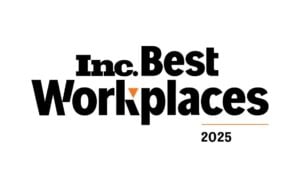
You’re strengthening your digital presence, ensuring every last element is well-covered, when someone on your team asks the multi-million dollar question, “What about Wikipedia?”
Yes, what, exactly, about Wikipedia? Well first, here are some key facts about the online encyclopedia:
- Consistently a top 3 search result on Google
- Over a billion views each month
- Referenced by AI tools
- Used to train AI tools
- Used by voice search assistants to answer people’s questions
- Helps to populate Google knowledge panels
- Many People Also Ask answers are pulled from Wikipedia pages
So, it clearly influences a brand’s digital presence. This means you need / want to bring it into the fold, under your control. Right?
It’s not that simple. You can’t truly bring Wikipedia under your control – it’s a crowdsourced platform – but, then, of course, you’re used to this because you can’t bring Google under your control either. We all have our strategies, our tips and tricks, but our digital presence is influenced by numerous factors. All we can do is become the best experts possible in what we can influence, and work with other experts in the areas we don’t have time to master.
If you want to work on your Wikipedia article yourself, you need to become an expert. We’ll break down what that looks like.
If you want to find someone who is already an expert, you’re looking for a Wikipedia agency. There are a few options in this market space. Let’s take a look at the major players and their pros and cons so that you can make the best choice for your brand.
Table of Contents

1. Do the work yourself
Doing the work yourself is an option. However, it isn’t as simple as jumping onto the article about your company, hitting edit, and changing whatever you’d like. Here’s what you need to do.
First, create a Wikipedia account. While you can edit without an account, if you want to engage with Wikipedians (which you need to do in this and every scenario if you are doing it right), you need an account.
Next, on your profile, declare your COI. One of Wikipedia’s most strongly avowed beliefs is that people should not edit or otherwise contribute to pages that they are affiliated with because it makes it too easy for pages to become biased. Wikipedia is an online encyclopedia. Articles should reflect that status. They should not be promotional marketing pieces nor should they be hate pieces. They should be fact-based and neutral.


This is where all your work will be done. This is where you will share – in small bits – what you’d like changed, added, or removed. This is where you will share sources to back up your requests. This is where you will wait for another, non-affiliated Wikipedian, to come along, read your request, and do the work for you.
Do us a favor and go back and re-read that last sentence. Did you catch it? You are not actively editing the page for which you have a COI. Instead, you are asking other Wikipedians, who should, in theory, be able to make an unbiased decision as to whether or not your request is biased, to do the work.
Does this process work? Yes. Is it straightforward? Of course not.
First of all, it can take weeks or months before someone sees your request. Once your request is viewed, it might be read by someone who thinks you have a valid point. That editor can make the changes. However, they might disagree with you. They might disagree with your sourcing. They might disagree with your wording. They might ask for someone else’s opinion.
What do you do during this process? You cooperate. You remain friendly and respectful – no matter how the other party behaves. Most likely they will be friendly and respectful as well. However, if they aren’t, this is no excuse for you. Keep your cool. If you need to, you can request someone else step in and help mediate the discussion. We have an entire post that walks you through how to get help. You can find it here.
Are there things you can do to sweeten the odds in your favor? Yes, everything we’ve shared here will help you:
- Creating an account, stating your COI, and using the Talk page shows your willingness to work with Wikipedia and learn its ins-and-outs
- Providing third party, respected sources that back up everything you want changed shows that you’ve done your homework and know that the right sourcing is required for everything on Wikipedia
- Asking for only one or two small changes at a time shows that you are willing to learn and that you respect others’ time
Take it slow and steady. Just as you wouldn’t create a paid media campaign with absolutely no background knowledge as to the process, you can’t jump into Wikipedia without taking the time to understand how it works and why it has the guidelines and processes that it does.
If you take the time to learn and to do it right, you will find Wikipedia a much more welcoming environment.

2. Hire a professional agency
If you’re looking for an agency to answer all your questions and solve all your problems, hiring expert professionals is the way to go. You need someone with solid writing skills, but also someone who understands the complexities of Wikipedia.
Because Wikipedia is a crowdsourced platform, your agency needs to be prepared to interact with dozens of unknown editors. There is no telling who will have an opinion on your article and any content edits, and when they will make their opinion known. Achieving your goals for the article is going to require working with these Wikipedians.
Your chosen agency needs to be skilled at collaboration and long-term strategy. They need to live and breathe Wikipedia and have experience resolving both straightforward and complex problems. This includes everything from bringing an outdated page up-to-date, to editing a heavily biased article to reflect a more neutral stance.
They need the experience to know that this often isn’t a linear process. They should know how to help you set and communicate realistic expectations (rewriting an entire article in a day and expecting all your edits to stick permanently is not going to happen; neither is updating your article with dozens of your latest press releases). Because they are so familiar with Wikipedia, they will know how to help you craft strategic goals – and will know how to accomplish those goals within the complex parameters that make up Wikipedia editing.
In short, this is the best choice if you are looking for a proven, trusted advisor, someone who will be with you in the long-term, even if new problems arise during your contract period.
What’s the potential drawback here? This is your priciest option. This is because it’s true what they say – you get what you pay for. If you want someone to take you and your brand seriously, the price tag will be higher because the return on investment is higher.

3. Hire your current PR or marketing agency
If you already have a PR or marketing agency, you can ask them if they are familiar with Wikipedia and if they provide any Wikipedia services. Our experience is that many of these groups are familiar with the unique challenges posed by Wikipedia. For this reason, they outsource Wikipedia work to Wikipedia experts.
In this case, speaking with your team can be a great starting point. They might have an agency they can refer you to, or they could be a great partner in helping you research potential agencies to hire.
Some possible cons to consider: If your PR/marketing agency does offer to do the work for you, but isn’t familiar with Wikipedia’s guidelines, you can wind up in a worse situation, with both of you unhappy. If the agency outsources the work, you might have less oversight and miss out on key strategy opportunities; any miscommunication between you, your agency, and the third party vendor can lead to errors and work delays.
4. Hire an independent contractor
Independent contractors, consultants, or freelancers are found on job boards across the internet at any price point. This makes them an attractive option. However, success here is hit or miss. You can find someone fantastic, by which we mean they understand how Wikipedia works, they understand your industry and brand, they have great communication, they are trustworthy, and they will do their best to achieve your goals.
Or, you might find someone horrible: they don’t have your best interests in mind, they aren’t interested in solving any problems other than the initial issue you bring to them, and they don’t care if their edits are reverted immediately because they ignored all of Wikipedia’s guidelines. As long as they got paid, the problem is now back in your hands and they couldn’t care less.
Worst case scenario, the freelancer takes your money and disappears. If your only form of communication is email – no phone calls or video calls – this can be all too easy.
5. Hire “1-800-Wikipedia-Experts”
We don’t think there is a literal “1-800-Wikipedia-Experts” hotline, but this is one way we refer to “fly by night” groups. These groups are also prevalent across the internet. You can spot them by two red flags: one, they will promise you they can achieve absolutely anything; two, they have too-good-to-be-true deals (70% off! 50% off! Act now!)
These groups present themselves as professionals, but they are anything but. They don’t know anything about Wikipedia’s guidelines and complexities and they don’t care to. All they care about is getting your money.

A good number of our clients come to us after having taken this route. It’s cheap! It’s promising! It makes sense that busy companies would head here first. However, it’s money down the drain, which is why our clients make a sharp 180 and choose to work with a true professional agency instead.
Pro Tip: Questions to ask before hiring
If you do decide to hire someone rather than do the work yourself, we recommend asking your chosen agency / freelancer the following questions:
What services do you offer?
- When it comes to Wikipedia, will they research, write, and edit? Will they communicate with other editors? Will they help you strategize? Do they understand Wikidata?
- Do they offer any other services? Can they integrate Wikipedia into a broader ORM strategy, for example?
What is your experience?
- Get details as far as Wikipedia experience and experience in the specific industry in which you operate.
Can you provide case studies or examples of past work?
- Actions speak louder than words. Ask for specifics. NDAs might keep case studies from being a possibility. In this case, you can always ask for a short demo – have them walk you through troubleshooting a specific case on Wikipedia. Do they know what they’re talking about?
How do you measure success?
- This will also depend on your specific goals. Do you want content added to an article? Tags removed? Your Wikipedia presence to grow? More page visitors? Trying to influence Google search results?
What is your pricing structure?
- This is always an important part of any professional relationship.
How will you communicate with us and report progress?
- It’s good to know ahead of time if you should expect emails and/or calls. How often? What are business hours? Will any communication happen outside of business hours? What reports are sent out and what is included in them? This is your chance to share what kind of communication style works best for you and what information you want.
Who will be working on our account?
- Whether it’s a team of one or five, this should absolutely be communicated. What is everyone’s experience level? What kind of a team are you paying for?
How do you stay current with industry trends and changes?
- Nothing is static in the digital world. Experts only remain experts by continuing to learn. Find out how important this is to the agency / freelancer you interview.
What are the expected timelines for seeing results?
- Communicating expectations ahead of time is far better for everyone involved. Be aware that when it comes to Wikipedia, realistic timelines for long-lasting results will be slow – measured in weeks and months, not days.
Good luck! We hope you find someone who treats your brand as respectfully as you do. If you have any questions about Wikipedia, ORM, or anything else marketing, connect with us at any time.
You might also like our State of Wikipedia Report and Wikipedia for Business.
The Mather Group LLC is a digital marketing agency. We specialize in enhancing online reputations through authentic content and expert digital brand management. Clients trust us with Wikipedia services, SEO, PPC, and ORM. Don’t like how you’re showing up online? Let’s talk.




